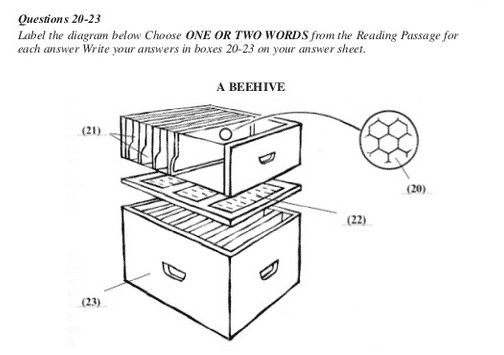The majority of successful senior managers do not closely follow the classical rational model of first clarifying goals, assessing the problem, formulating options, estimating likelihoods of success, making a decision, and only then taking action to implement the decision. Rather, in their day-by-day tactical maneuvers, these senior executives rely on what is vaguely termed intuition to manage a network of interrelated problems that require them to deal with ambiguity, inconsistency, novelty, and surprise and to integrate action into the process of thinking.
Generations of writers on management have recognized that some practicing managers rely heavily on intuition. In general, however, such writers display a poor grasp of what intuition is. Some see it as the opposite of rationalityothers view it as an excuse for capriciousness.
Isenberg's recent research on the cognitive processes of senior managers reveals that managers' intuition is neither of these. Rather, senior managers use intuition in at least five distinct ways. First, they intuitively sense when a problem exists. Second, managers rely on intuition to perform well-learned behavior patterns rapidly. This intuition is not arbitrary or irrational, but is based on years of painstaking practice and hands-on experience that build skills. A third function of intuition is to synthesize isolated bits of data and practice into an integrated picture, often in an Aha! experience. Fourth, some managers use intuition as a check on the results of more rational analysis. Most senior executives are familiar with the formal decision analysis models and tools, and those who use such systematic methods for reaching decisions are occasionally leery of solutions suggested by these methods which run counter to their sense of the correct course of action. Finally, managers can use intuition to bypass in-depth analysis and move rapidly to engender a plausible solution. Used in this way, intuition is an almost instantaneous cognitive process in which a manager recognizes familiar patterns.
One of the implications of the intuitive style of executive management is that thinking is inseparable from acting. Since managers often know what is right before they can analyze and explain it, they frequently act first and explain later. Analysis is inextricably tied to action in thinking/acting cycles, in which managers develop thoughts about their companies and organizations not by analyzing a problematic situation and then acting, but by acting and analyzing in close concert.
Given the great uncertainty of many of the management issues that they face, senior managers often instigate a course of action simply to learn more about an issue. They then use the results of the action to develop a more complete understanding of the issue. One implication of thinking/acting cycles is that action is often part of defining the problem, not just of implementing the solution.
1. According to the text, senior managers use intuition in all of the following ways EXCEPT to
[A] speed up of the creation of a solution to a problem.
[B] identify a problem.
[C] bring together disparate facts.
[D] stipulate clear goals.
2. The text suggests which of the following about the writers on management mentioned in line 1, paragraph 2?
[A] They have criticized managers for not following the classical rational model of decision analysis.
[B] They have not based their analyses on a sufficiently large sample of actual managers.
[C] They have relied in drawing their conclusions on what managers say rather than on what managers do.
[D] They have misunderstood how managers use intuition in making business decisions.
3. It can be inferred from the text that which of the following would most probably be one major difference in behavior between Manager X, who uses intuition to reach decisions, and Manager Y, who uses only formal decision analysis?
[A] Manager X analyzes first and then acts Manager Y does not.
[B] Manager X checks possible solutions to a problem by systematic analysis Manager Y does not.
[C] Manager X takes action in order to arrive at the solution to a problem Manager Y does not.
[D] Manager Y draws on years of hands-on experience in creating a solution to a problem Manager X does not.
4. The text provides support for which of the following statements?
[A] Managers who rely on intuition are more successful than those who rely on formal decision analysis.
[B] Managers cannot justify their intuitive decisions.
[C] Managers'' intuition works contrary to their rational and analytical skills.
[D] Intuition enables managers to employ their practical experience more efficiently.
-
相关文章
- 2021英语阅读:冲刺模拟及答案(1)
- 2021英语阅读:冲刺模拟及答案(2)
- 2022十大巅峰完本仙侠修真小说排行榜
- 一家长接孩子未戴口罩致30多人感染
- 3月新增本土感染者超15000例,各地疫情从何而来?
- 珊瑚适应气候变化
- 珊瑚为适应气候变化更换共生藻类
- 统一的老坛酸菜到底从哪里来?
- 截至3月15日12时,莱西疫情累计确诊病例782例、无症状感
- 3月15日0-12时,长春市新增本地确诊病例730例
姐的欢喜 » 2021英语阅读:冲刺模拟及答案(6)
免责声明:本文由网友提供互联网分享,经供参考,不代表本网的观点和立场。

 英文信件结尾处署名写在左边还是右边
英文信件结尾处署名写在左边还是右边 小学达到英语专四只能算“标配”?谁在助推
小学达到英语专四只能算“标配”?谁在助推 英语句子的连词(英语三个句子并列用什么连
英语句子的连词(英语三个句子并列用什么连 雅思阅读到底考你什么?
雅思阅读到底考你什么? 雅思阅读不同题型答题技巧
雅思阅读不同题型答题技巧